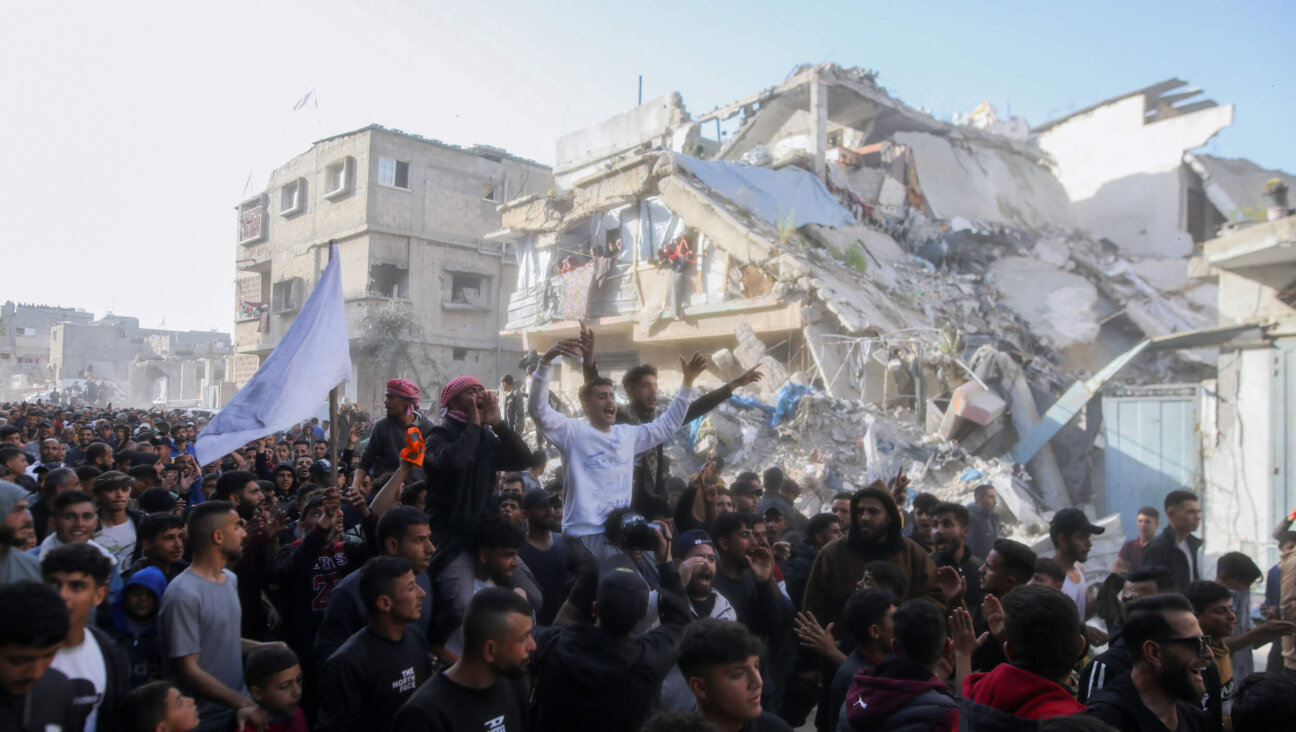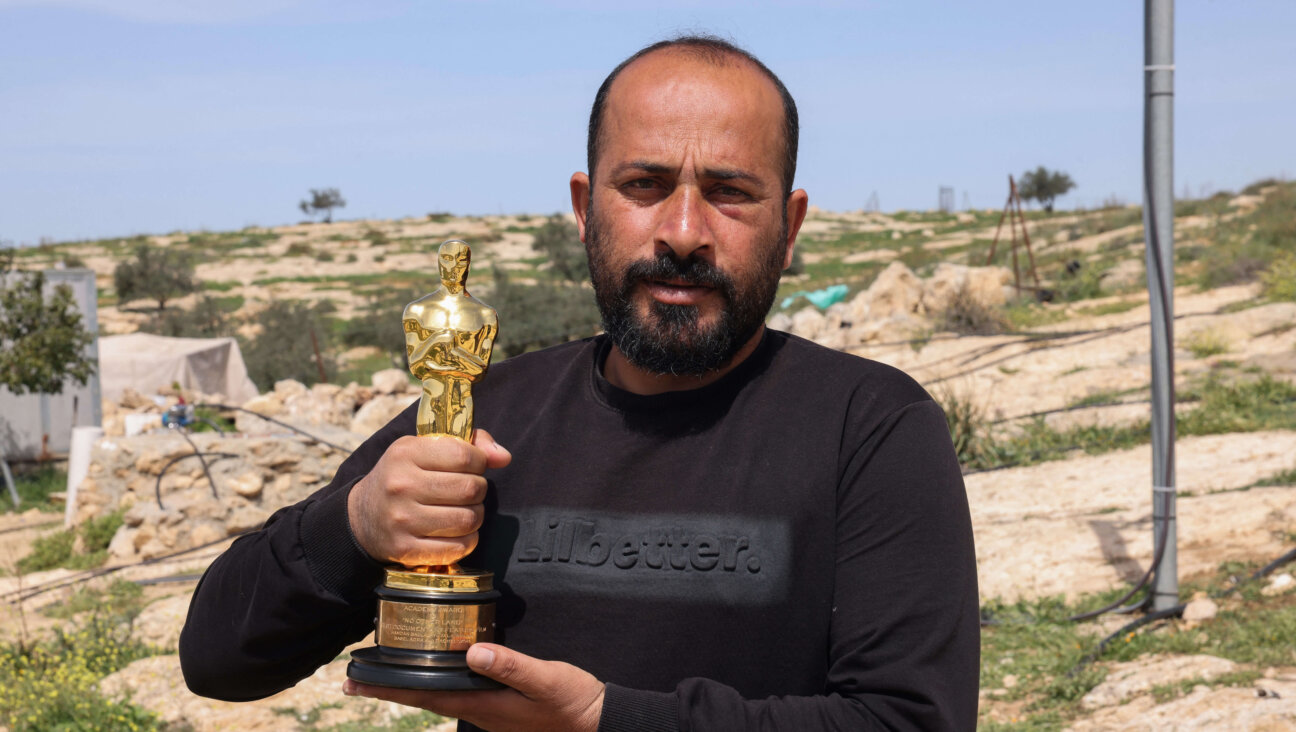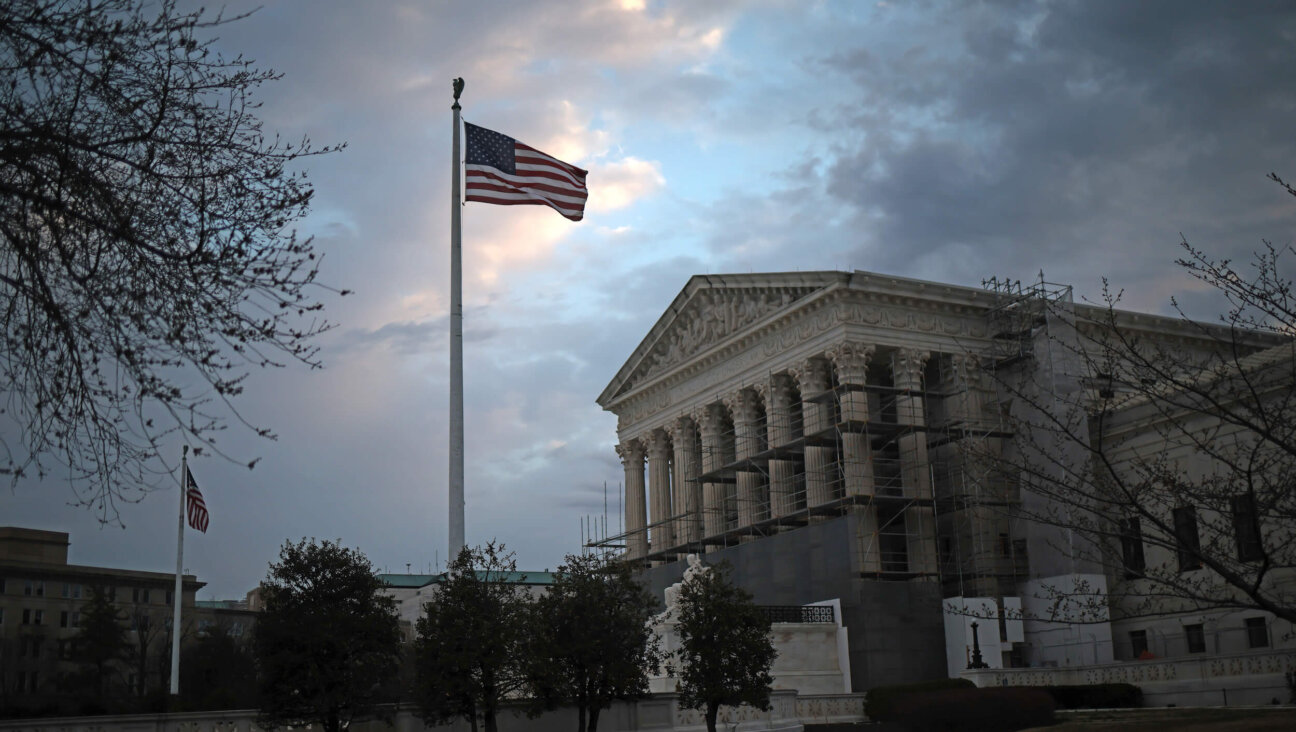Enabling Disaster
In quietly ramping down the demands it is making of Israel and the Palestinians under the Middle East road map, the Bush administration seems to think it has hit upon a clever tactic for buying time and avoiding conflict. It’s more likely to prove a recipe for a new explosion.
The plan, as Ori Nir reports on Page 3, is to give everyone a breather by letting each side redefine — meaning, basically, wiggle out of — a basic commitment that it finds politically onerous.
For the Israelis, the administration’s plan means renegotiating the meaning of “settlement freeze.” Not that it isn’t clear already. The road map spells it out plainly and simply: Israel “freezes all settlement activity (including natural growth of settlements).” Natural growth is an Israeli code word, referring to new housing built within existing communities to accommodate growing families. According to the map, Israel also “immediately dismantles all settlement outposts erected since March 2001,” when Prime Minister Sharon took office. Nothing ambiguous there. But the Sharon government, stocked with ministers who dislike the whole idea of the road map, is having a hard time rolling back any settlements, old or new. It would like to see the “freeze” become a lot more fluid. And the administration, lacking an appetite for a fight, is willing to explore new definitions — in effect, to rewrite the painstakingly composed road map.
As for the Palestinians, their obligation is even more clear-cut, and their effort to renegotiate it becomes more shocking with each day’s news reports. The road map requires them to “undertake visible efforts on the ground to arrest, disrupt, and restrain individuals and groups conducting and planning violent attacks on Israelis anywhere.” Even more specifically, it requires Palestinian security forces to begin “sustained, targeted, and effective operations aimed at confronting all those engaged in terror and dismantlement of terrorist capabilities and infrastructure.” Included, the road map says, is “confiscation of illegal weapons.”
The Next Round
There’s not a word in there about sitting down with terrorist groups for a stiff talking-to. But that is what the Palestinian Authority has chosen to adopt as its tactic for meeting its obligation. Its ultimate goal, it says, is to obtain a monopoly on force — a basic condition of sovereignty — at some point down the road. But it won’t risk a fight on the streets. It won’t “arrest,” “disrupt” or “restrain” anyone. No confronting. No dismantlement. Just a lot of chatting.
And while they chat, the terrorists prepare for the next round. Daily accounts in the Israeli press tell of new efforts by Hamas and Islamic Jihad to rearm, recruit and train, making good use of the new freedom of movement Israel has granted under the terms of the road map. The border between Gaza and Sinai is riddled with new tunnels, used to smuggle weapons to the terrorist groups, and nothing is done by Palestinian — or Egyptian — authorities to stop it. Hamas is believed to have developed and tested a new version of its Qassam rocket, a souped-up mortar that is now capable of carrying a serious payload and delivering it to Ashkelon, a major Israeli city up the coast from Gaza. Teams are busy manufacturing quantities of the rocket in Gaza and perhaps in the West Bank, from which the new Qassam could reach Tel Aviv. In the best case, the stockpiling seems intended to create a balance of terror, limiting Israel’s negotiating room down the road. In the worst case, it’s a preparation for slaughter. Hamas has made it clear, most recently this week, that it views the current cease-fire as just temporary and is itching to return to “armed struggle” against the “Zionist enemy” when the cease-fire runs out at the end of September.
The Israeli defense establishment, normally a key force for moderation on the Israeli planning scene, is — for the first time in recent memory — more worried than the political leadership. That says it all.
And it’s not all in the future. In the month since the cease-fire began, no fewer than 178 attacks have been carried out, mostly by freelance terrorist cells linked to Fatah but funded and perhaps run by Iran. At least four Israelis have been killed, and the number will rise if the American teenagers currently missing in the Galilee turn out to have been kidnapped.
Bombs and Fences
The Bush administration, which knows how to read its own documents, made some noises in recent months about the importance of the P.A. following through on the dismantlement clause in the road map. But that seems to be history. For now the White House appears to be buying into the Palestinians’ argument that their rookie prime minister, Mahmoud Abbas, needs to build his political base before he can afford to move against terrorist groups like Hamas. Washington has also made noises that sound like the Saudi-European defense — that Hamas is a social service and educational movement that shouldn’t be discredited in toto because of its occasional forays into mass murder.
There is some justice in the argument put forward by Abbas and his allies that Israel’s half-hearted performance — not just in freezing settlements but in clearing road blocks, easing movement and more — has soured Palestinian popular opinion, making it hard to move against the terrorists. Israel can and should do more to show good will toward the Palestinians. Sharon could take some risks in confronting his own hardliners, and the Bush administration should press him to do so, instead of enabling his dithering.
At the end of the day, however, there is a basic moral difference between what Israel must do and what the Palestinians must do. Building new split levels — or fencing off an olive grove — is simply not comparable to bombing a pizzeria full of toddlers.
There is an explosion looming if the current drift continues. It can still be avoided, but that will require bold action by all sides. The administration should be pressing hard for that boldness, not enabling a drift toward disaster.
The Forward is free to read, but it isn’t free to produce

I hope you appreciated this article. Before you go, I’d like to ask you to please support the Forward.
At a time when other newsrooms are closing or cutting back, the Forward has removed its paywall and invested additional resources to report on the ground from Israel and around the U.S. on the impact of the war, rising antisemitism and polarized discourse.
Readers like you make it all possible. We’ve started our Passover Fundraising Drive, and we need 1,800 readers like you to step up to support the Forward by April 21. Members of the Forward board are even matching the first 1,000 gifts, up to $70,000.
This is a great time to support independent Jewish journalism, because every dollar goes twice as far.
— Rachel Fishman Feddersen, Publisher and CEO
2X match on all Passover gifts!
Most Popular
- 1

Film & TV What Gal Gadot has said about the Israeli-Palestinian conflict
- 2

News A Jewish Republican and Muslim Democrat are suddenly in a tight race for a special seat in Congress
- 3

Culture How two Jewish names — Kohen and Mira — are dividing red and blue states
- 4
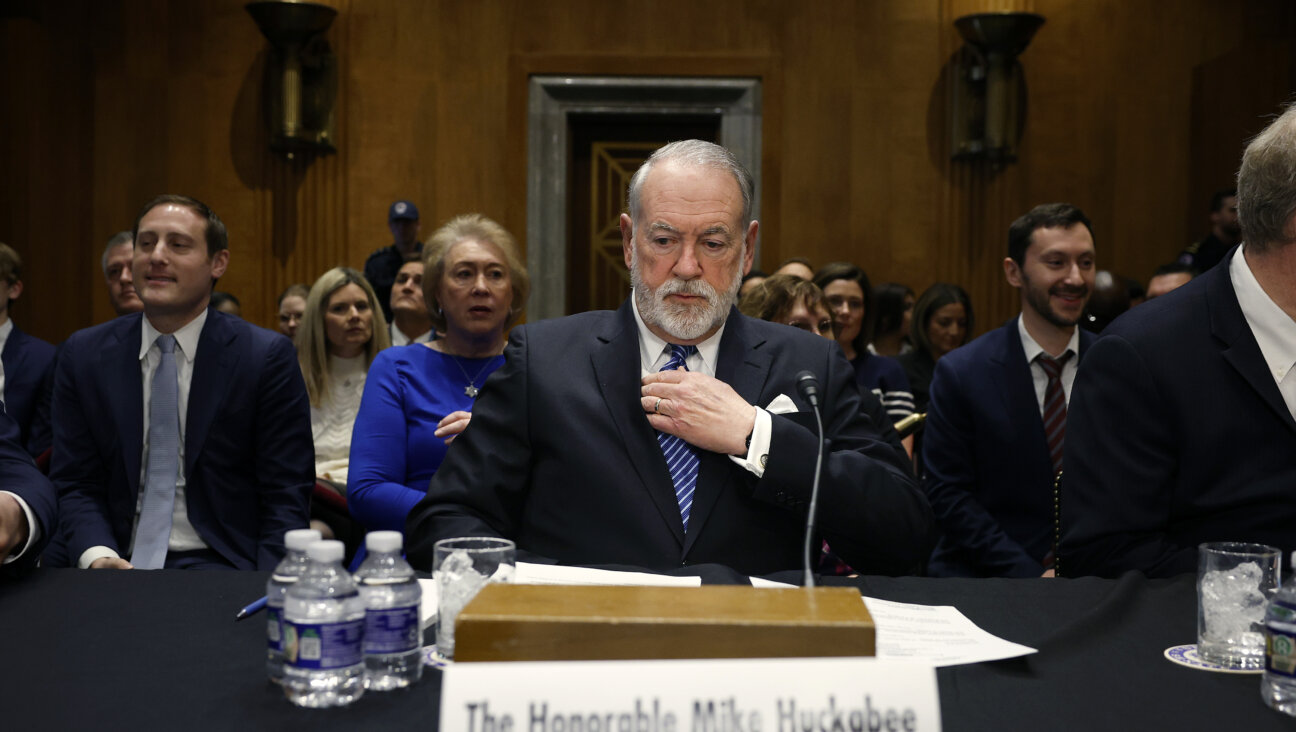
Opinion Mike Huckabee said there’s ‘no such thing as a Palestinian.’ It’s worth thinking about what that means
In Case You Missed It
-
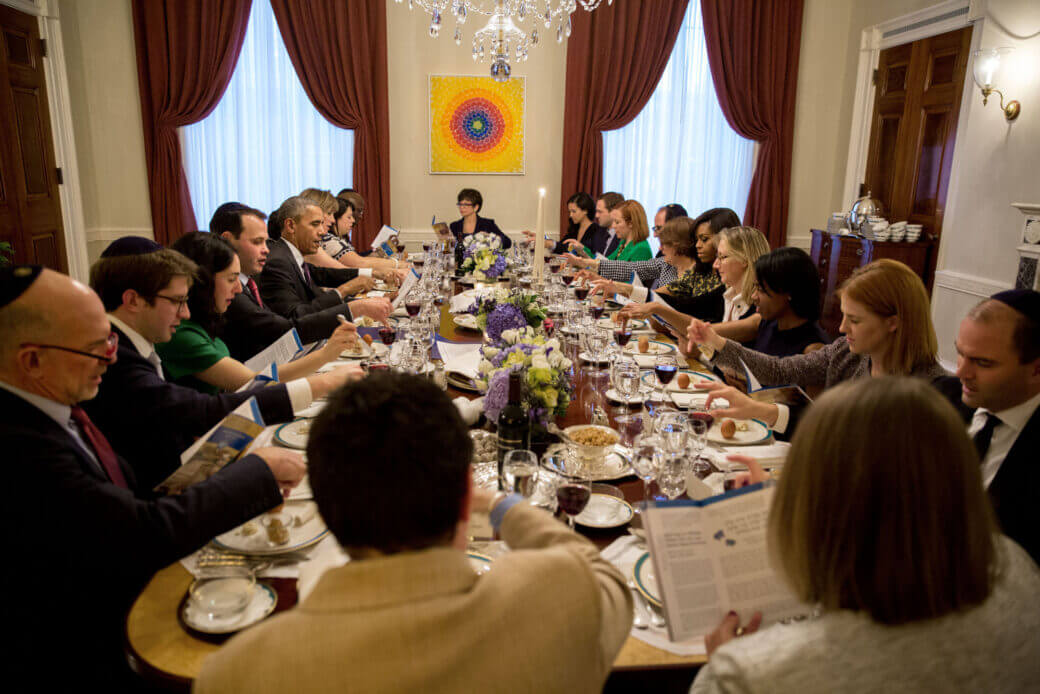
Books The White House Seder started in a Pennsylvania basement — its legacy lives on
-

Fast Forward The NCAA men’s Final Four has 3 Jewish coaches
-
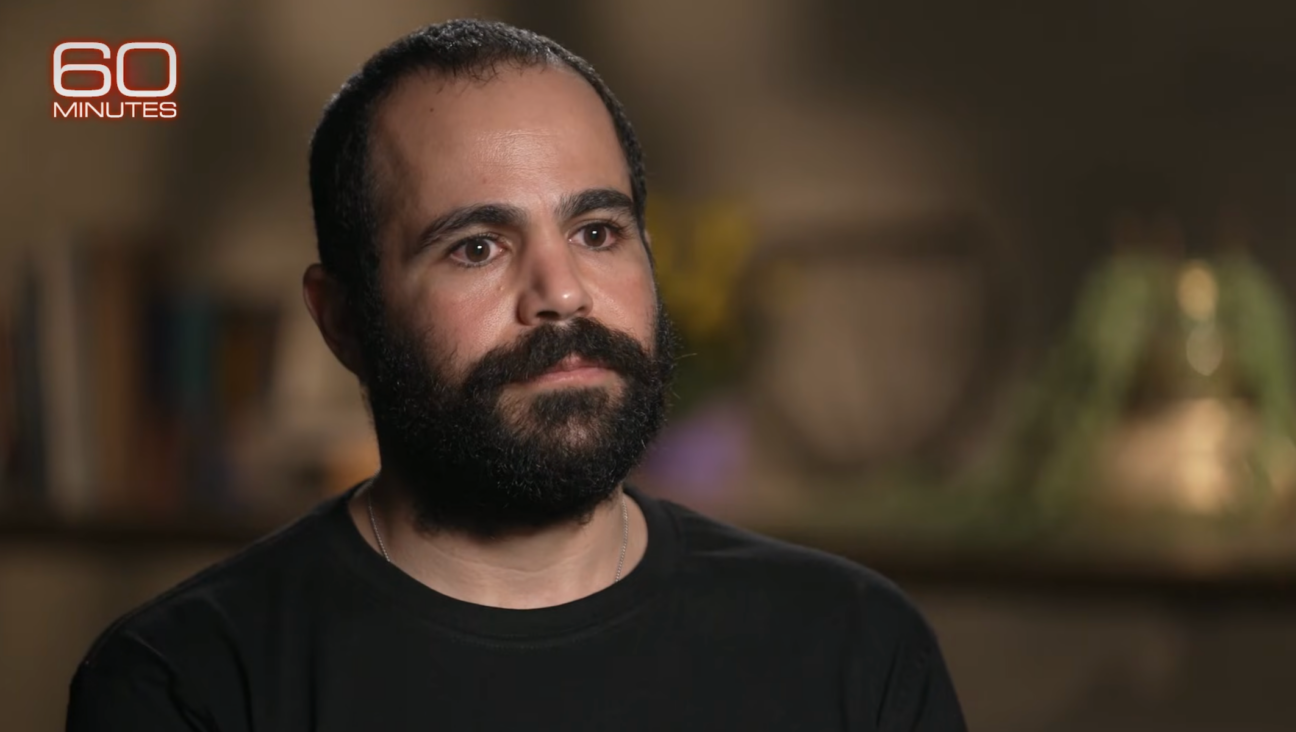
Fast Forward Yarden Bibas says ‘I am here because of Trump’ and pleads with him to stop the Gaza war
-

Fast Forward Trump’s plan to enlist Elon Musk began at Lubavitcher Rebbe’s grave
-
Shop the Forward Store
100% of profits support our journalism
Republish This Story
Please read before republishing
We’re happy to make this story available to republish for free, unless it originated with JTA, Haaretz or another publication (as indicated on the article) and as long as you follow our guidelines.
You must comply with the following:
- Credit the Forward
- Retain our pixel
- Preserve our canonical link in Google search
- Add a noindex tag in Google search
See our full guidelines for more information, and this guide for detail about canonical URLs.
To republish, copy the HTML by clicking on the yellow button to the right; it includes our tracking pixel, all paragraph styles and hyperlinks, the author byline and credit to the Forward. It does not include images; to avoid copyright violations, you must add them manually, following our guidelines. Please email us at [email protected], subject line “republish,” with any questions or to let us know what stories you’re picking up.







